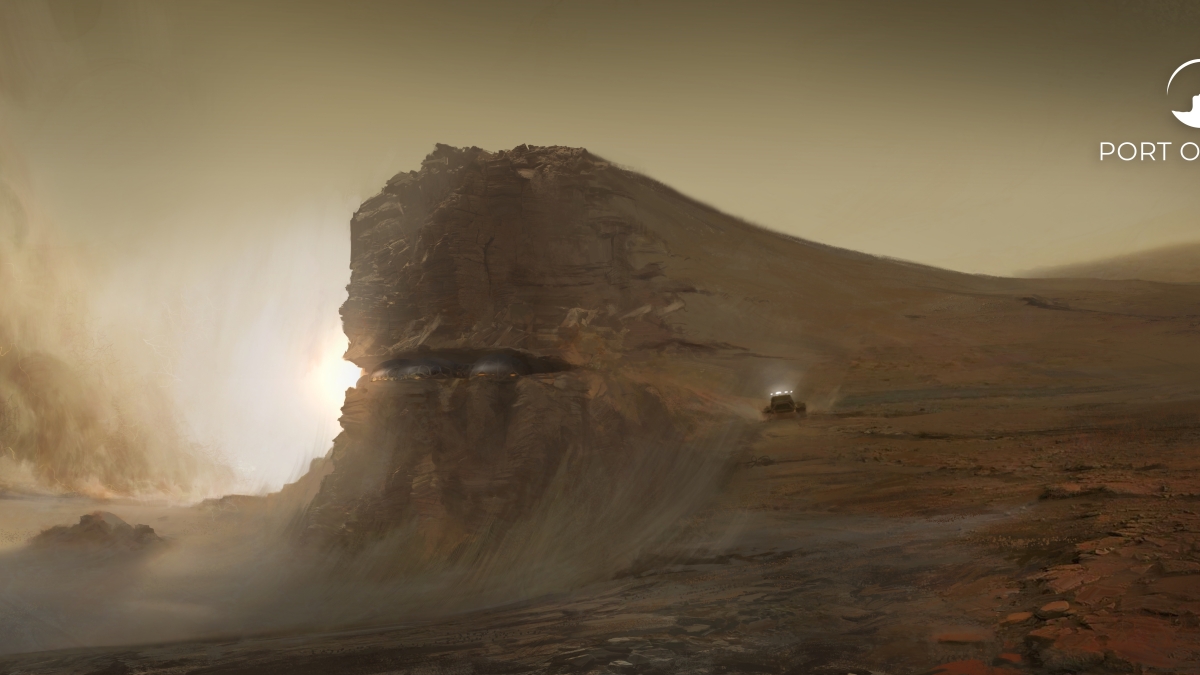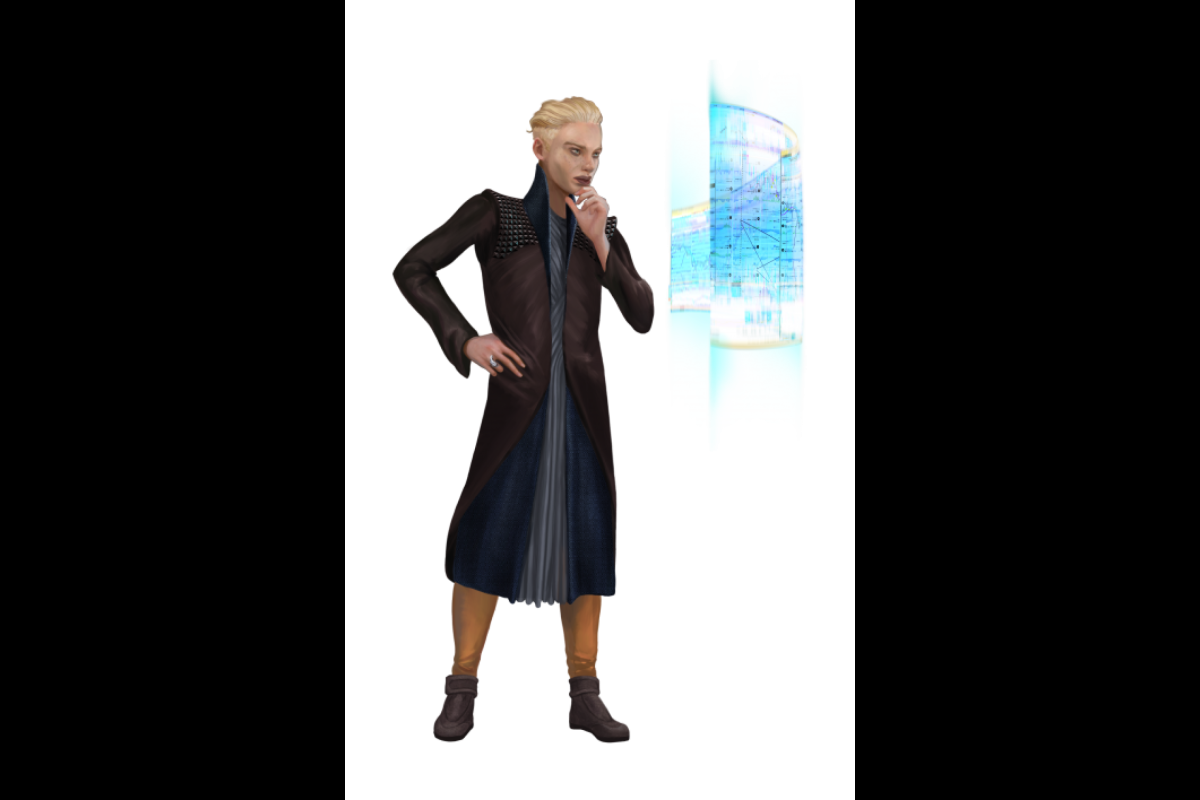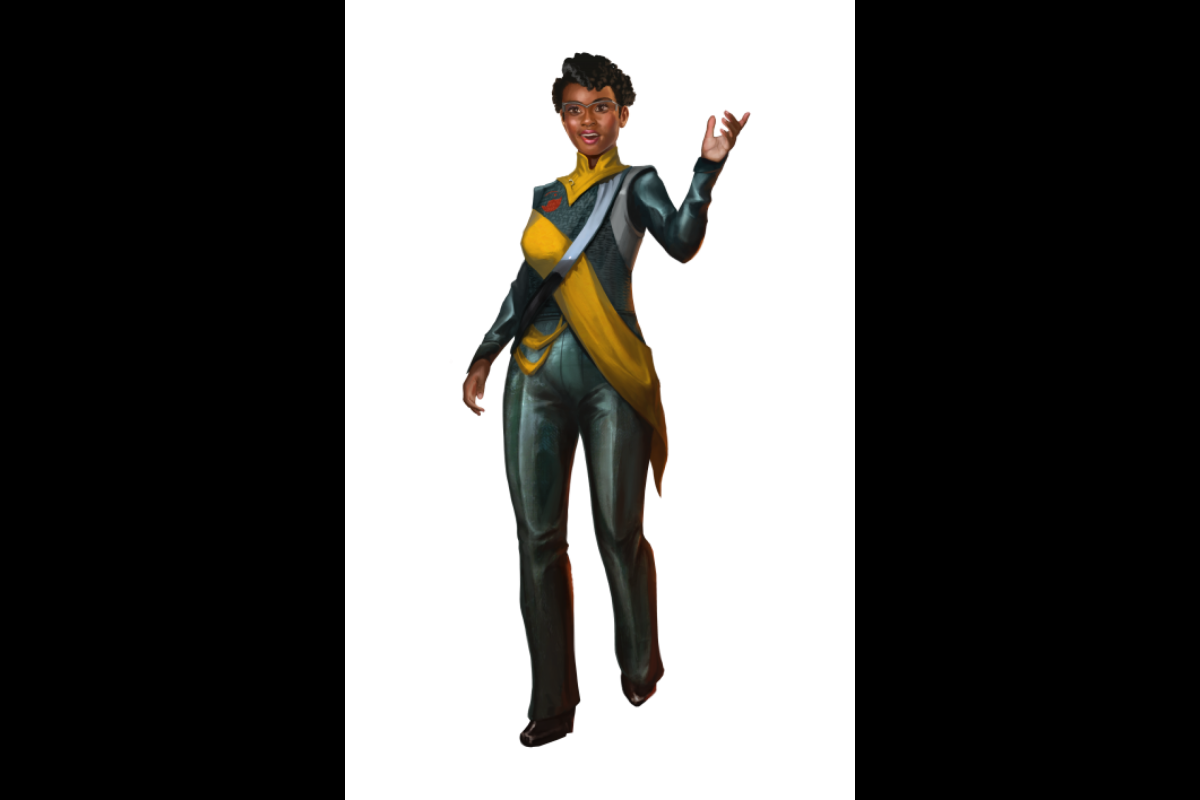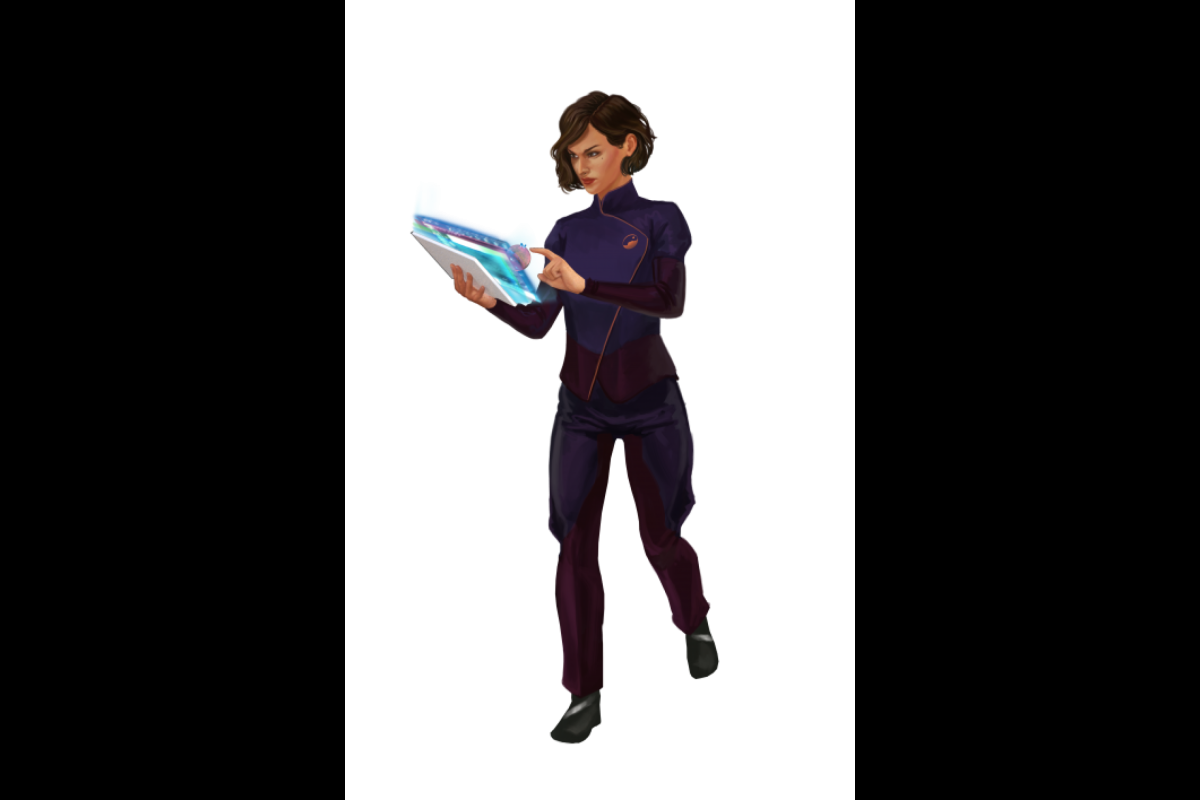Space: the final frontier, and one that humans are rapidly becoming able to explore in more depth and at greater distances. As exciting as that may be, we’re also still figuring out how we’ll navigate the inevitable social issues that come along with expanding our reach into the vast unknown.
In an effort to answer the question of how we can sustain healthy human communities in space, Arizona State University Interplanetary Initiative Associate Director Lance Gharavi conceived of a game called “Port of Mars” in 2017, as part of the initiative’s Big Questions method.
The idea for the game was to have players take on the roles of different characters, such as “researcher” or “politician,” in a simulated Martian community and work to try to successfully govern themselves. All the while, the team behind the game would monitor play, collecting data and looking for key traits of successful communities.
At the time, it was a five-player card game, with three people administering it and collecting data. Soon, the data-collecting team realized they needed a larger sample size than the game was giving them. That’s when “Port of Mars” evolved into the online game it is now – one that is open to the general public and allows for unlimited simultaneous game play and automated data collection.
It’s the next step in the evolution of the game from an Interplanetary Initiative seed-funded project to a fully-fledged, grant-funded research platform.
Commons dilemmas
While the game designers set “Port of Mars” on the Red Planet, the patterns they see are universally applicable.
“The Martian setting is a fictional shell around the core experiment, but what we’re learning is how people navigate social dilemmas under conditions of high uncertainty and high risk. That’s as relevant for space as it is for Earth,” said Gharavi, who serves as project lead.
Marco Janssen, professor at ASU’s School of Sustainability, joined the project due to his expertise in commons dilemmas, or social dilemmas, which explore the idea that everyone benefits if everyone behaves in a certain way, but behaving that way comes at a real or perceived cost to the individual.
“I never thought about a situation on another planet, but when I learned more about it, I realized that this is similar to the situation I am seeing in a lot of places around the world. They have to cooperate to maintain a system; the only difference is that if you are on a habitat of Mars, you cannot leave. You have to cooperate or you die. It’s even more difficult because the stakes are higher,” Janssen said.
Ultimately, the "Port of Mars" team wants their game to become a platform for social dilemma research in which researchers can adapt the parameters to test different variables. They want to experiment with artificial intelligence playing the game to see what sorts of solutions they come up with. The team also plans to add new capabilities to the online game, including voice communications, expanding on the current option of chat communications.
Continued growth
By fall of 2020, the “Port of Mars” team had created an online version of the game, allowing for the first “Mars Madness” tournament to take place, where winners of games played winners of other games until there was one victor. Back then, play was restricted to ASU undergraduate students. That changed this year when play opened up to the general public with more games running at once than ever. And with more people playing, more data is collected, and the more reliable the conclusions of the game are.
Another stepping stone for the game took place in 2021 when it was awarded a Decision, Risk, and Management Sciences (DRMS) grant from the National Science Foundation for $535,000, allowing the project to progress beyond the Interplanetary Initiative.
That funding has since enabled the project to scale up and get larger sample sizes. It has also allowed the project team to introduce an educational component, so that they can share the game with middle and high school students. They plan to study the kinds of learning outcomes that emerge, including how the students understand social dilemmas. The team has already published papers with their findings and will continue to draw more conclusions as their sample sizes grow.
“What’s appealing is that this is something that a lot of youngsters are interested in. If I go to high schools and talk about groundwater issues, they are not very eager, but if it is about surviving in a habitat on Mars, it might be more interesting, although the underlying dilemmas are very much the same,” Janssen said.
New teams are launching to the Red Planet all the time. To play "Port of Mars," sign up for a game at portofmars.asu.edu.
The Big Questions ideation process is the Interplanetary Initiative’s inquiry-based method of imagining and addressing the biggest questions humanity can imagine when it comes to our future in space. The process has sparked more than 40 projects since it was implemented in 2017, including "Port of Mars." Read about the nine pilot projects being funded by the Interplanetary Initiative this year.
More Science and technology

ASU professor honored with prestigious award for being a cybersecurity trailblazer
At first, he thought it was a drill.On Sept. 11, 2001, Gail-Joon Ahn sat in a conference room in Fort Meade, Maryland. The cybersecurity researcher was part of a group that had been invited…

Training stellar students to secure semiconductors
In the wetlands of King’s Bay, Georgia, the sail of a nuclear-powered Trident II Submarine laden with sophisticated computer equipment juts out of the marshy waters. In a medical center, a cardiac…
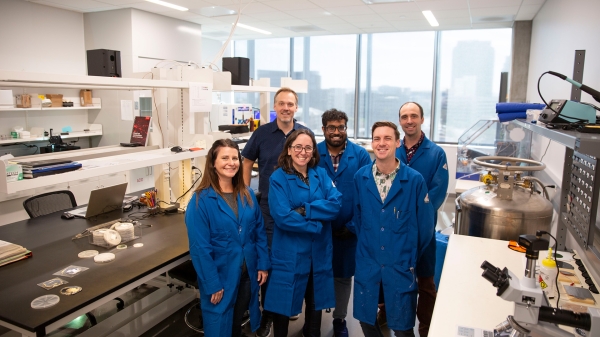
ASU startup Crystal Sonic wins Natcast pitch competition
Crystal Sonic, an Arizona State University startup, won first place and $25,000 at the 2024 Natcast Startup Pitch Competition at the National Semiconductor Technology Center Symposium, or NSTC…
